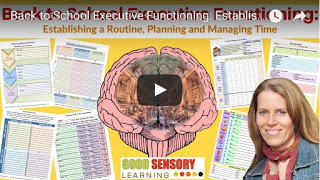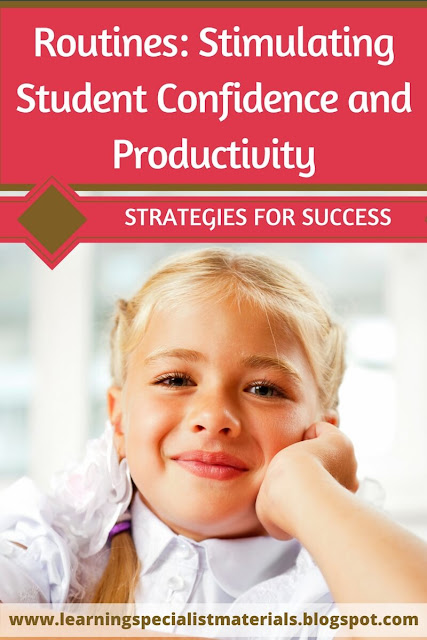This week I wanted to tell you about my online store, Good Sensory Learning. I’m Dr. Erica Warren, and I established this site so I could share all the materials that I have created over the last 20+ years as a learning specialist and educational therapist. When I first began my private practice, Learning to Learn, I had great difficulty finding fun and multisensory materials for my students that were effective and engaging. So back in 2005, I made it my mission to design and distribute high-end, remedial products as well as memorable, motivating lessons that bring delight to learning. If you would like to try a free sampling of my activities , CLICK HERE . How Are the Products Organized at Good Sensory Learning? You can download my Free Printable Catalog or you can browse the site using the grey “search all products” bar in the top right of any page with keywords such as dyslexia, working memory, and executive functioning. What’s more, drop down menus in the red banner allow you t
Helping students establish positive, daily routines can be a lesson that will serve them throughout their lives. Instead of aimlessly floating from task to task, when students learn to create a structured schedule with intentions and goals, they can steer their way to high marks, navigate childhood stressors, and cultivate improved confidence and productivity.
Establishing routines throughout the day, can help both parents and teachers maintain power and respect while providing kids the structure that they need. For this blog post, I will be focusing on a home routine, but many of these ideas and principles can be applied to the classroom. You’ll notice that I include positive intentions, affirmations, and gratitude as this can help nurture a positive attitude as well as a positive inner voice.
Getting your children into the following habits can make mornings more manageable for all family members. You can pick and choose from the following options or create your own. The important thing to do is to start with a written checklist until the tasks become habitual:
Morning Routine:
After School Routine:
- Get out of bed the first time your alarm goes off: Research suggests that you will be less tired if you get up the first time you wake up.
- Make your bed: It is the first thing kids can accomplish for themselves each day.
- Brush your teeth: Oral hygiene is key for health, connecting with others, and feeling good.
- Exercise and stretch: Do a few warm-up exercises and/or stretches to wake up and energize the body.
- Eat a healthy breakfast: Eat a breakfast that is high in healthy fats and proteins and is low in carbohydrates and sugar. Feeding the body with foods that nurture cognitive growth and provide the needed nutrients is key.
- Express positive intentions: Write down or share with a family member 3 positive intentions you have for the day. This can help kids mindfully guide their day, so that they can reach their goals and maintain a positive attitude.
- Express affirmations: Write down or share with a family member 3 daily affirmations. Daily affirmations are to the mind what exercise and stretching is to the body. Repeating affirmations helps to reprogram the unconscious mind for success as well as attract the abundance desired. I love to provide kids with an affirmations diary, so that they have a place to record their wishes.
After School Routine:
Work with your children to define specific times for homework, chores, free time, and family time. Also make sure that distractions are limited. Sometimes the technological tools needed to complete homework also offer constant distractions from social media and messaging. Make sure these notifications are turned off during study times.
 Cheers, Dr. Erica Warren
Cheers, Dr. Erica Warren
Dr. Erica Warren is the author, illustrator, and publisher of multisensory educational materials at Good Sensory Learning and Dyslexia Materials. She is also the director of Learning to Learn and Learning Specialist Courses.
· Blog: https://learningspecialistmaterials.blogspot.com/
· YouTube Channel: https://www.youtube.com/user/warrenerica1
· Podcast: https://godyslexia.com/
· Store: http://www.Goodsensorylearning.com/ & www.dyslexiamaterials.com
· Courses: http://www.learningspecialistcourses.com/
· Newsletter Sign-up: https://app.convertkit.com/landing_pages/69400
- Schedule homework as well as timed breaks: Using a timer and alarms can be very motivating for some and frustrating for others. Finding the right time tracking tool is important when defining the best approach.
- Eat a snack: I like to make "brain food." This is a trail mix of organic nuts, seeds, dried veggies, and unsweetened dried fruits. Letting kids make their own medley can be a fun activity.
- Eat dinner: Again be mindful of limiting or omitting processed foods as well as sugary and starchy foods.
- Express gratitude: Write down or share with a family member three things you are grateful for. Gratitude rewires the brain and helps students experience greater happiness. This is a great thing for all family members to do when sharing a meal.
- Get some exercise: Exercise can be a wonderful way for kids to get a break from school work and also energize their bodies.
- Do chores: Allow kids to earn an allowance based on the chores that they complete. This develops a work ethic. You will also find that they will have a greater sense of value for the things they purchase with the money that they earn.
- Prepare for school: Make sure books bags are packed and collect all other needed materials for school.
- Plan attire: Lay out your clothes for the morning.
- Record or share positive experiences: Write down or share with a family member three amazing things that happened today.
- Record or share ideas for growth: Write down or share with a family member two ways that you could have improved your day.
- Bathe before bedtime: Taking a bath or shower at night can improve sleep and make the morning routine simpler.
- Planning Time Management and Organization for Success
- Executive Functioning Games Bundle
- Working Memory Bundle
- The Ultimate, Mindful and Editable Planner/Agenda
If you would like to watch a video on this content, select the image below:
Dr. Erica Warren is the author, illustrator, and publisher of multisensory educational materials at Good Sensory Learning and Dyslexia Materials. She is also the director of Learning to Learn and Learning Specialist Courses.
· Blog: https://learningspecialistmaterials.blogspot.com/
· YouTube Channel: https://www.youtube.com/user/warrenerica1
· Podcast: https://godyslexia.com/
· Store: http://www.Goodsensorylearning.com/ & www.dyslexiamaterials.com
· Courses: http://www.learningspecialistcourses.com/
· Newsletter Sign-up: https://app.convertkit.com/landing_pages/69400


Comments
Post a Comment